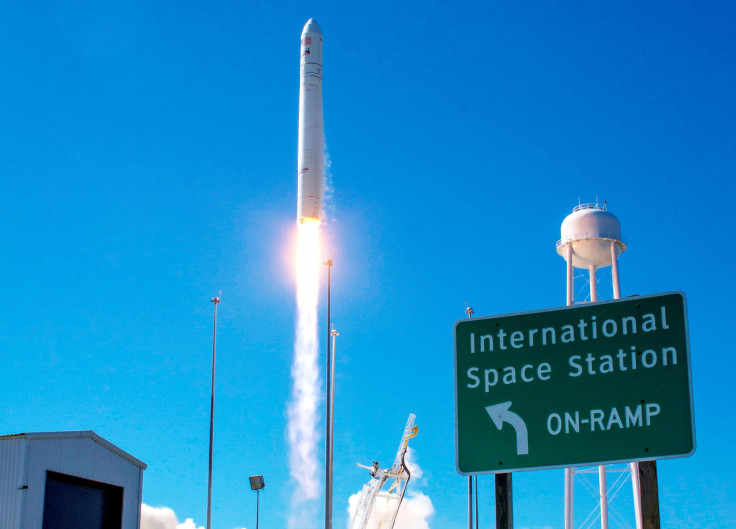Orbital Science’s Cygnus Cargo Spacecraft Docking With ISS Delayed 48 Hours Due To Software Glitch

The Cygnus spacecraft, a trial cargo ship launched last week by Orbital Sciences Corporation (NYSE: ORB), a Dulles, Va.-based space technology company, will not be able to dock with the International Space Station, or ISS, until Tuesday due to a software glitch, officials announced on Sunday.
According to scientists working on the project, the Cygnus established direct data contact with the ISS at about 1:30 a.m. EDT on Sunday. However, about six hours before the ship was scheduled to dock, a software-related problem caused Cygnus to reject the navigation data radioed from the ISS.
“Orbital has subsequently found the causes of this discrepancy and is developing a software fix,” NASA said in a statement on Sunday. “The minimum turnaround time to resume the approach to the ISS following an interruption such as this is approximately 48 hours due to orbital mechanics of the approach trajectory.”
NASA said that due to the docking delay, Expedition 37 crew members aboard the ISS now will have an off-duty day in advance of a busy week ahead, which includes Tuesday's Cygnus rendezvous, followed by preparations for the arrival of three new crew members on Wednesday.
The Cygnus spacecraft launched from NASA’s Wallops Flight Facility in Virginia last week as part of a demonstration mission to prove Cygnus' cargo-delivering capabilities to the ISS could potentially lead to regularly-scheduled missions beginning in December.
If the mission is completed successfully, Orbital will begin scheduled cargo-delivery missions to the ISS under a $1.9 billion contract with the space agency. As part of the deal, Orbital will deliver approximately 20,000 kilograms of net cargo to the ISS over eight missions through 2016.
Orbital Sciences is the second company to send a commercial cargo craft to the space station after Elon Musk's California-based SpaceX, which was the first company to send its own cargo ship with two successful commercial resupply missions and two demonstration missions under its belt.
© Copyright IBTimes 2024. All rights reserved.






















